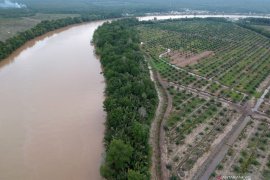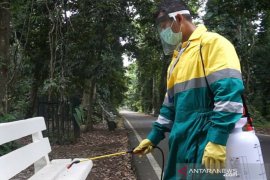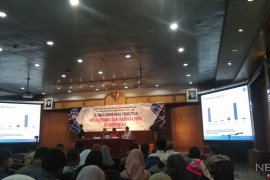"Based on data from the GISAID, where the SARS-CoV-2 genome has been successfully sequenced and identified in the last three weeks, more than 95 percent were the delta variant, whilst the rest comprised the alpha variant and the Indonesian one," Saputra noted in a statement received here, Saturday.
He explained that based on the research conducted at LIPI's Bio Safety Level 3 laboratory, by taking samples for eight consecutive days between June 10 and June 18, almost 100 percent of the findings involved the delta variant.
"It was proven by the data that the spike in the number of cases in Indonesia was caused by the delta variant of the SARS-CoV-2 virus," he stated.
Indonesia has seen a significant surge in the number of COVID-19 cases in the last few weeks, during which the number of new cases totaled 523,695 during the July 2-15 period.
On July 11, Indonesia recorded the highest number of COVID-19 deaths in the world, with the number of mortalities reaching 1,007 in a single day.
The spike in COVID-19 cases in Indonesia was suspected to be caused by the outbreak of the new delta variant, first discovered in India.
To this end, Saputra cautioned that the highly infectious variant can also lower effectiveness of COVID-19 vaccines and remedies.
"The genetic material found in the delta variant has characteristics that can reduce the effectiveness of vaccinations and drug therapies currently being conducted," he stated.
Saputra further noted that based on data obtained from the United Kingdom, the delta variant is highly correlated with an increase in the hospital occupancy rate, which means the variant has an effect on the severity of conditions of COVID-19 patients.
Apart from the delta variant, cases in Indonesia were also due to a new variant found locally, known as the B.1.466 variant.
He noted that before the delta variant had entered Indonesia, a new local variant had dominated the COVID-19 cases in the country.
The World Health Organization (WHO) has warned Indonesia to continue to monitor local variants, as genetically, these variants can increase transmission in the community. Additionally, these variants can cause a decrease in the effectiveness of vaccines and drug therapy.
"However, up until now, there is no scientific evidence related to epidemiological effects or scientific evidence that shows the direct effect of mutation that occurs. Currently, there are not many local variants, and so far, the delta variant is deemed to be more dangerous," he expounded.
Since the COVID-19 research was first conducted in Indonesia, over 10 variants were discovered in over a year. However, the variants that had raised the most concerns are the delta, alpha, and the variant of interest called gamma.
"Although the world is currently shocked by the new variants of COVID-19, specifically the gamma and lambda variants, we have not found these variants in Indonesia according to data from GISAID," he stated.
Related news: MP asks Indonesia to prepare worst case scenario for delta variant
Related news: Seven provinces susceptible to Delta variant attacks: Health minister
Related news: Minister necessitates 50% mobility decline to flatten COVID-19 curve
Translator: Martha HS, Aria Cindyara
Editor: Sri Haryati
Copyright © ANTARA 2021












